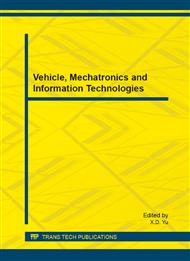p.2645
p.2649
p.2653
p.2658
p.2662
p.2667
p.2673
p.2677
p.2681
Research on the Model of Business English Translator Training Based on DRM Control Model
Abstract:
With the development of economic globalization, the cultivation of business English Translators should follow the principle of compound talents training mode and improve the overall quality of the talent of business English translators. Business translation training plan has shortage of teaching content and lacks cross-cultural communication training program. Its teaching mission objectives is not new and business professional competence of teachers are not enough and the teaching method is too traditional and curriculum is unreasonable. Based on this situation, the paper does the digitization DRM solutions using the DRM digital control program based on multivariate intelligent teaching reform program of talent training. This paper establishes and develops the ODRL talent model and achieves the segmentation description and dynamic segmentation authorization of tasks and contents of business English translation courses. It also achieves the secondary development of DRM under the ODRL control model and verifies the feasibility and reliability of the translators training mode using the teaching effect evaluation method of OpenAPI , which provides a reliable theoretical basis for the reform of business English training model.
Info:
Periodical:
Pages:
2662-2666
Citation:
Online since:
August 2013
Authors:
Price:
Сopyright:
© 2013 Trans Tech Publications Ltd. All Rights Reserved
Share:
Citation:


